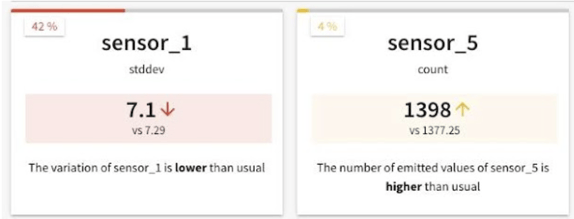Be it to produce bulk chemicals, packaged goods or to perform critical cleaning processes in food and drug production, batch processes form a critical part of the manufacturing value chain where inefficiencies cost billions of dollars each year. At a time when supply chains are stressed and raw material prices are increasingly volatile, the need to maximize equipment utilization by reducing downtime and to improve yield by reducing unnecessary waste becomes even more critical.
In process industries, few things are more disruptive than batch process interruptions or inefficiencies. When processes fail, everything from overall equipment effectiveness (OEE) to labor utilization to revenue and profitability can be negatively affected. Process inefficiencies alone can cost billions of dollars. In general pharmaceuticals, for example, the costs are as much as $50 billion per year; on top of this, around 30 billion drug doses are lost due to underutilization.
Needless to say, finding a solution for avoiding such disruptions and inefficiencies is of paramount importance to enterprises across all of the process industries. McKinsey studies show, for instance, that soft sensor applications that detect issues early can increase throughput by up to 15%. Industry experts seeking holistic and reliable improvements to their batch process are largely concerned about three things:
- How to predict batch failure probability to enable operators & maintenance to intervene before failure occurs.
- How to identify the root causes of failure.
- How to enable engineers and operators in their plant(s) with performance insights.
Tackling these problems is a high-reward endeavor and should be a priority for any enterprise operating batch processes.
Get to the Heart of Production Process Data
Here’s where Dataiku comes in. Our Batch Performance Optimization solution — designed with these central concerns in mind — provides an adapt-and-apply application to empower data teams to dissect vast volumes of production process data. The solution allows those teams to easily develop actionable insights for technicians, operators, and reliability and process engineers to understand the root cause of failures and to predict batch outcomes, thereby accelerating the move from reaction to anticipation in batch manufacturing.
The solution is easy to install and set up on your Dataiku instance. It comes with a ready-to-use dashboard that allows you to easily follow your production process, identify the source of process upsets with explainable ML, and better predict the failure possibilities for your next batch.
Let’s take a look at some of the Batch Performance Optimization solution highlights in more detail:
- Easily ingest production process data from Historians or other IoT sources and transactional batch data through an intuitive Dataiku App.
- Visualize insights on batch process historical performance, key failure patterns, and their impact on future probability of success.
- Perform root cause analysis by analyzing sensor data per batch and recipe or product.
- For each recipe or product, predict risk of failure via an explainable and transparent machine learning model.
- Deploy a web application to deliver insights and provide decision support to production and operators.
Solution Key Features
The solution seamlessly plugs into the Dataiku instance and is easy to adjust according to the project’s needs. Here are some of its key features.
Instantly Setup via a Dataiku Application
Easily ingest relevant data sources and process relevant columns without writing code or performing any manual modifications.
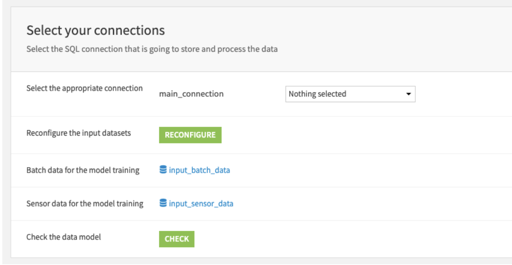
Quickly Review Past Batch Performance
Access simple aggregations by recipe and equipment, powered by advanced analytics. Compare multiple assets, by recipe and batch duration.
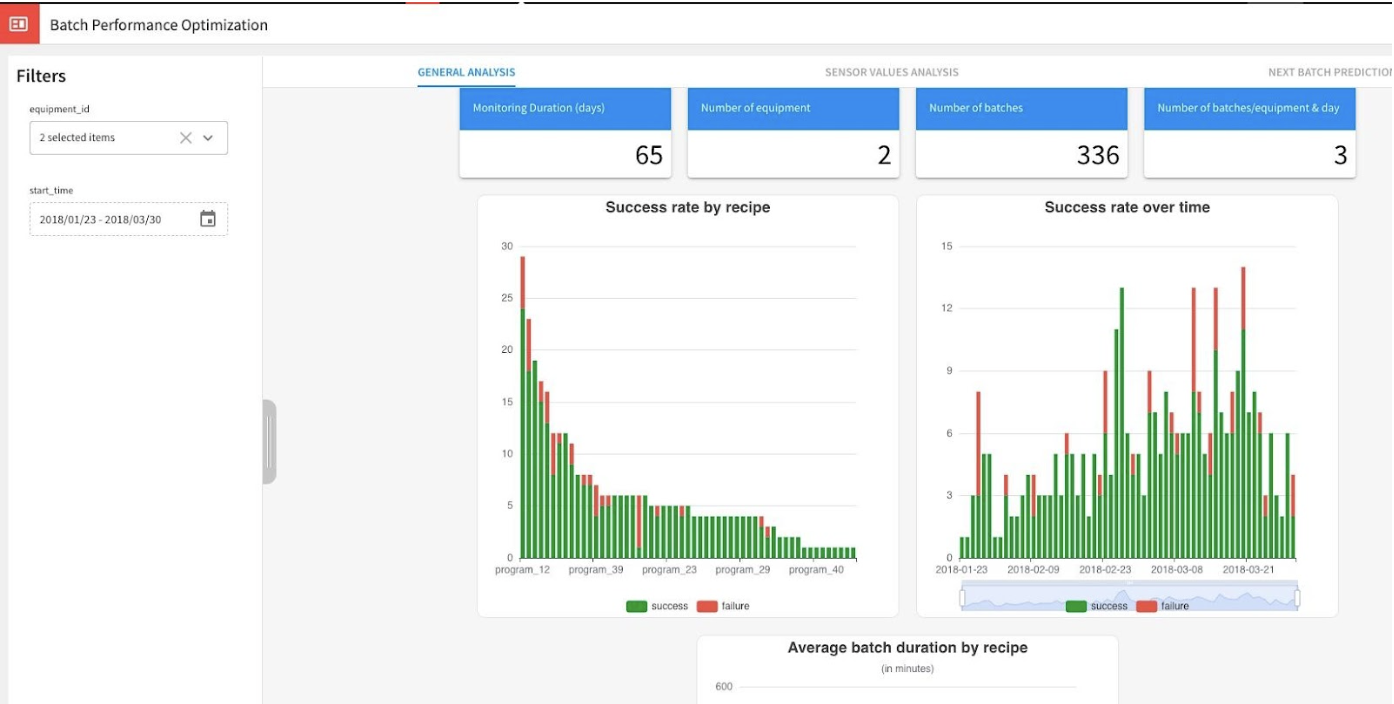
Track Process Data Across Multiple Batches to Identify Bad Actors and Golden Batches.
Leverage powerful root-cause analysis on charts and graphics to identify process variability across batches, in the context of batch quality results.
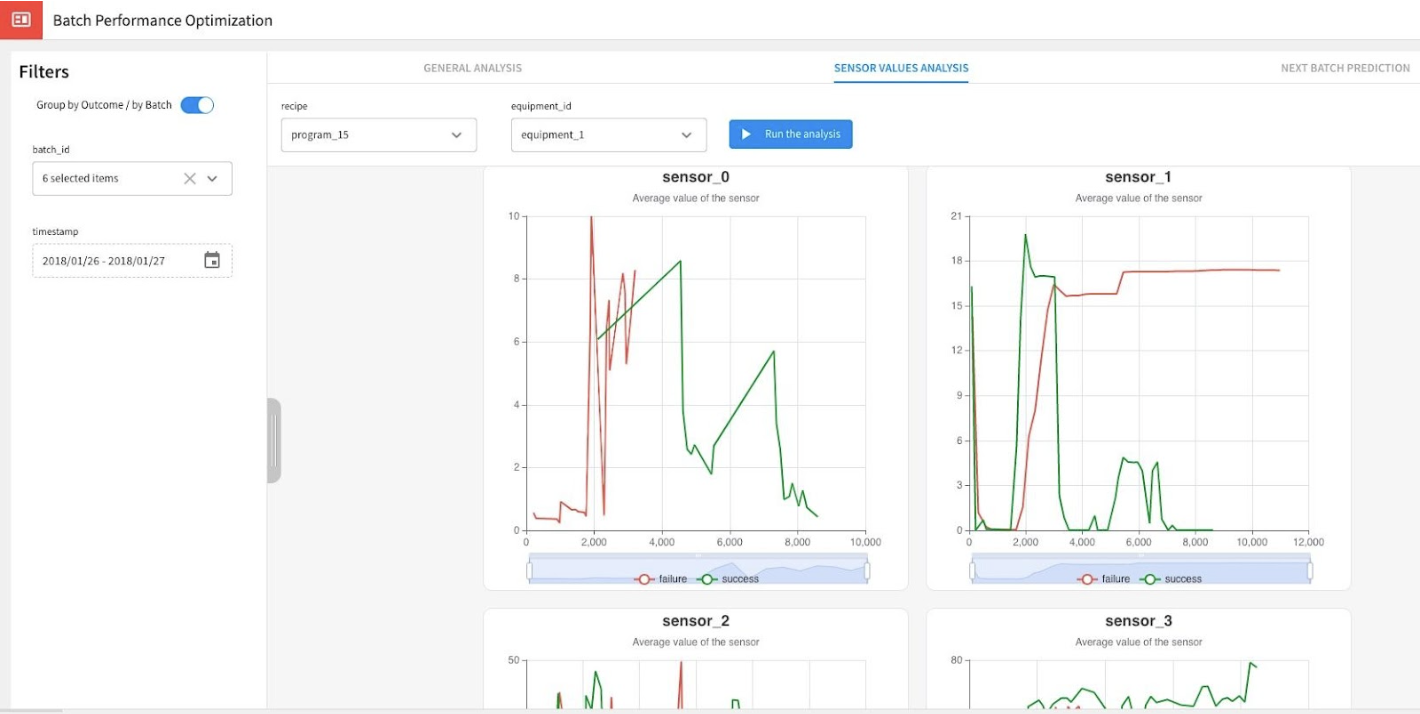
Predict Failure by Batch Recipe or Product
Determine risk of success or failure for each next recipe or product.
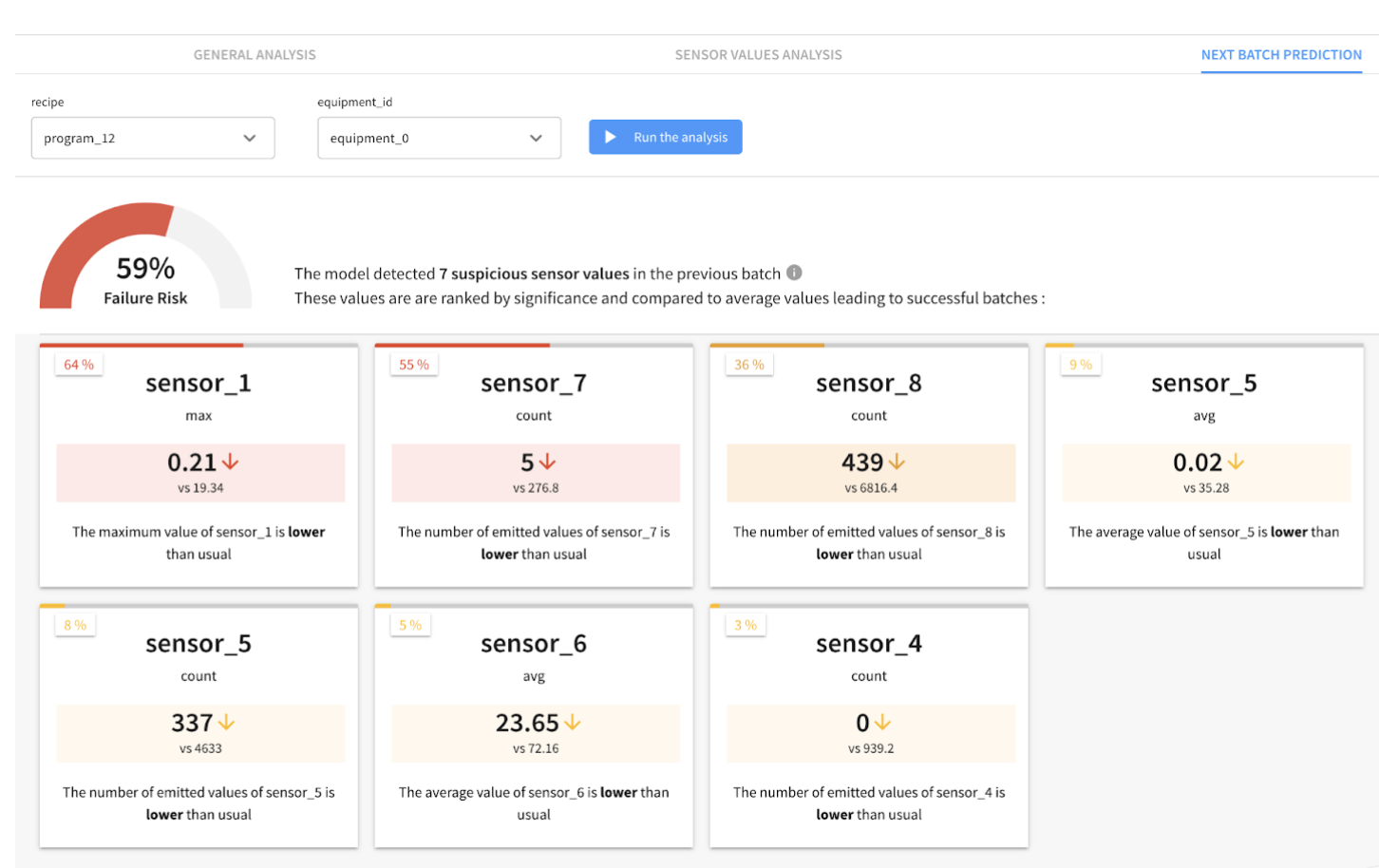
Intuitive Decision Support
Benefit from full explainability of predictive models through key influencing factors of risk score understandings; empower operators and engineers to take corrective action based on failure modes.
